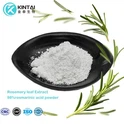Ashwagandha, also known as Indian ginseng or winter cherry, is an ancient medicinal herb widely used in Ayurvedic medicine for its numerous health benefits. One of the most popular ways to consume ashwagandha is in powder form, as it is convenient and easy to incorporate into daily routines. However, the question arises: is it good to take ashwagandha powder daily? In this blog, we'll explore this query and provide comprehensive insights into the potential benefits and considerations associated with regular ashwagandha powder consumption.
What are the potential benefits of taking ashwagandha powder daily?
Ashwagandha, scientifically known as Withania somnifera, has been revered for its adaptogenic properties, which means it can help the body cope with stress and promote overall well-being. Regular consumption of ashwagandha powder may offer a range of potential benefits, including:
- Stress and anxiety reduction: Numerous studies have suggested that ashwagandha can help reduce cortisol levels, the hormone associated with stress, and promote a sense of calm and relaxation. By managing stress effectively, it may also indirectly improve sleep quality and overall mental well-being.
- Improved cognitive function: Ashwagandha has been found to enhance cognitive performance, including memory, attention, and reaction time. It may also have neuroprotective effects, potentially reducing the risk of neurodegenerative diseases like Alzheimer's and Parkinson's.
- Enhanced physical performance and muscle strength: Ashwagandha has been traditionally used as a tonic to improve physical endurance and muscle strength. Some studies suggest that it may increase muscle mass, improve exercise performance, and enhance overall physical capacity.
- Regulation of blood sugar levels: Research indicates that ashwagandha powder may help regulate blood sugar levels by improving insulin sensitivity and reducing inflammation, making it potentially beneficial for individuals with diabetes or prediabetic conditions.
- Immune system support: Ashwagandha is believed to possess immunomodulatory properties, meaning it can help regulate and strengthen the immune system's response to pathogens and external threats.
- Fertility and reproductive health: In some traditional practices, ashwagandha has been used to enhance fertility and support reproductive health in both men and women. However, more research is needed to fully understand its effects in this area.
Are there any side effects or risks associated with daily ashwagandha consumption?
While ashwagandha is generally considered safe for most individuals when consumed in appropriate doses, there are a few potential side effects and risks to be aware of:
- Gastrointestinal discomfort: Some people may experience mild gastrointestinal issues like nausea, stomach discomfort, or diarrhea when first starting ashwagandha supplements, especially at higher doses. These side effects typically subside with continued use or by reducing the dosage.
- Interference with medications: Ashwagandha powder may interact with certain medications, such as immunosuppressants, thyroid medications, and sedatives. It's essential to consult with a healthcare professional before taking ashwagandha if you're on any prescription drugs.
- Pregnancy and breastfeeding concerns: While ashwagandha has been traditionally used for reproductive health, there is limited research on its safety during pregnancy and breastfeeding. It's generally recommended to avoid ashwagandha supplements during these periods unless advised by a qualified healthcare provider.
- Allergic reactions: Although rare, some individuals may experience allergic reactions to ashwagandha, particularly those with allergies to nightshade plants (e.g., tomatoes, potatoes, eggplants).
- Thyroid function: Ashwagandha may affect thyroid hormone levels, which could be a concern for individuals with thyroid disorders. It's advisable to monitor thyroid function and consult with a healthcare professional if taking ashwagandha regularly.
How much ashwagandha powder should you take daily for optimal results?
The appropriate dosage of ashwagandha powder can vary depending on individual factors, such as age, health status, and the specific condition being addressed. Here are some general guidelines:
- For stress and anxiety management: Typical dosages range from 300 to 600 mg per day, divided into two or three smaller doses.
- For cognitive enhancement and neuroprotection: Studies have explored dosages ranging from 300 to 1,000 mg per day, with some suggesting that higher doses may be more effective for cognitive benefits.
- For physical performance and muscle strength: Doses of 500 to 600 mg per day have been studied for their potential effects on exercise performance and muscle recovery.
- For blood sugar regulation: Dosages of 250 to 600 mg per day have been investigated for their potential impact on blood sugar levels and insulin sensitivity.
It's important to note that these dosage recommendations are general guidelines, and individual needs may vary. It's always best to start with a lower dose and gradually increase it under the guidance of a healthcare professional or qualified practitioner.
Additionally, it's crucial to consider the quality and standardization of the ashwagandha supplement you're taking. Look for reputable brands that provide information about the concentration of active compounds, such as withanolides, which are believed to contribute to ashwagandha's therapeutic effects.
Our Ashwagandha Bulk Powder has received unanimous praise from customers. If you would like to know more about this product, please feel free to contact Sales@Kintaibio.Com.
References
1. Chandrasekhar, K., Kapoor, J., & Anishetty, S. (2012). A prospective, randomized double-blind, placebo-controlled study of safety and efficacy of a high-concentration full-spectrum extract of ashwagandha root in reducing stress and anxiety in adults. Indian Journal of Psychological Medicine, 34(3), 255-262.
2. Choudhary, D., Bhattacharyya, S., & Bose, S. (2017). Efficacy and safety of ashwagandha (Withania somnifera (L.) Dunal) root extract in improving memory and cognitive functions. Journal of Dietary Supplements, 14(6), 599-612.
3. Wankhede, S., Langade, D., Joshi, K., Sinha, S. R., & Bhattacharyya, S. (2015). Examining the effect of Withania somnifera supplementation on muscle strength and recovery: a randomized controlled trial. Journal of the International Society of Sports Nutrition, 12(1), 43.
4. Chengalpa, S., Sankar, S., & Nair, A. M. (2022). Withania somnifera in the management of type 2 diabetes mellitus: An updated systematic review and meta-analysis. Phytotherapy Research, 36(3), 736-757.
5. Mikolai, J., Erlandsen, A., Murison, A., Brown, T., Gregory, W. L., Raman, A., & Khoury, N. (2022). Higher dosages of ashwagandha root extract exhibit favorable improvements in cognitive function and brain metabolites in adults with mild cognitive impairment: A pilot study. Nutrients, 14(13), 2738.
6. Sharma, A. K., Basu, I., & Singh, S. (2018). Efficacy and safety of ashwagandha root extract in subclinical hypothyroid patients: a double-blind, randomized placebo-controlled trial. The Journal of Alternative and Complementary Medicine, 24(3), 243-248.
7. Head, K. A., & Kelly, G. S. (2009). Nutrients and botanicals for treatment of stress: adrenal fatigue, neurotransmitter imbalance, anxiety, and restless sleep. Alternative Medicine Review, 14(2), 114-140.
8. Lopresti, A. L., Smith, S. J., Malvi, H., & Kodali, R. (2019). An investigation into the stress-relieving and pharmacological actions of an ashwagandha (Withania somnifera) extract: A randomized, double-blind, placebo-controlled study. Medicine, 98(37), e17186.
9. Durg, S., Shivaram, S. B., & Bavage, S. (2020). Withania somnifera (Indian ginseng) in male infertility: An evidence-based systematic review and meta-analysis. Phytomedicine, 78, 153270.







